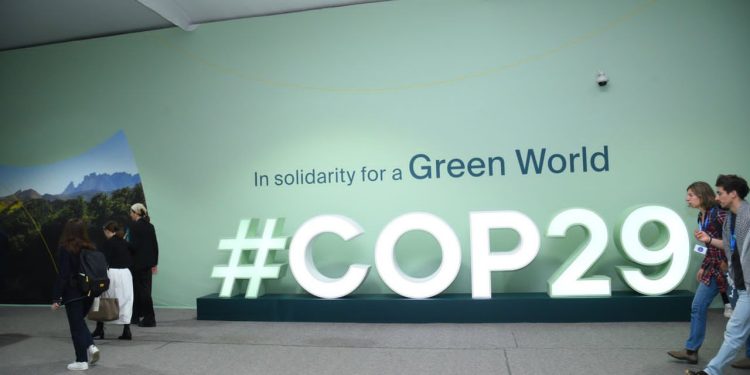African Civil society organisations (CSOs), including Corporate Accountability and Public Participation Africa (CAPPA) and Health of Mother Earth Foundation (HOMEF), have doubled down on their demand for up to $8trillion annually as climate change reparations from industrialised nations to the Global South.
Addressing the media on the outcome of the recently concluded COP29 climate talks and the way forward, the CSOs opined that the reparations payment would end the squabbles over climate finances.
The groups backed the United Nations Framework Convention on Climate Change (UNFCCC)’s Common But Differentiated Responsibilities (CBDR), which requires rich and highly polluting nations that contributed disproportionately to greenhouse gases in the atmosphere to own up to their historical responsibility, cut emissions at source and provide finance to help vulnerable nations that have not significantly contributed to the climate crisis.
The CSOs expressed disappointment in the outcomes of COP29, which they said failed to deliver meaningful financial support for vulnerable nations even though the Loss and Damage mechanism agreed to at COP27 in Egypt was endorsed at COP28 in the United Arab Emirates (UAE).
Despite being tagged as a “Finance COP,” the event proposed a miserly $300 billion climate finance package, set to take effect in 2035, adding that COP29 “failed spectacularly on the finance note and the leader of the Nigerian delegation rightly called the minuscule amount offered an insult.
HOMEF’s Executive Director, Nnimmo Bassey, said: “Scientists inform us that 2024 is the hottest year on record. The year has also recorded a high number of disastrous weather events.”
The groups also faulted the policy of nationally determined contributions (NDCs) – commitments that countries make to reduce their greenhouse gas emissions as part of climate change mitigation – reached at the Paris talks in 2015.
They argued that Emissions Gap reports issued by the United Nations Environment Programme (UNEP) in 2023 and 2024 “clearly show that if nations carry out their NDCs, the world will experience temperature increases far above the 1.5C and 2.0C targets set by the Paris Agreement.”
They said, “ COP 29 came up with a miserly $300 billion, which would come into effect in 2035. The COP ignored the call of vulnerable nations, global civil society and Indigenous peoples for rich and historically responsible nations to Pay Up and to do so in Trillions, not Billions.
“Another concern is that even the promised $300 billion may come through so-called innovative financial sources that include loans and would increase the already huge debt burdens of the poor countries.
“Climate finance can readily be raised by redirecting funds from military expenditure that saw rich nations spend up to $2.4 trillion in 2023. Halting fossil fuel subsidies and holding polluters accountable would raise more than $5 trillion annually. So, the problem is not a lack of cash, but a matter of priority.”
They also condemned the developing world’s acceptance of carbon markets to combat climate change, describing it as a false solution that provides a lifeline for polluters and fossil fuel companies who could now buy the license to continue polluting.
They further warned against what they described as “Carbon Colonialism”, saying the African continent is being exposed to land grab, whereby “some countries have mortgaged their forests to carbon speculators with some ceding up to 10 and 20 per cent of their total land mass.
“In Nigeria, there is a rise of speculators grabbing hundreds of thousands of mangrove forests to enable the so-called investors to trade in blue and other colours of carbon. A particularly worrisome note is the plan of Niger State to give 16% of its land mass to a Brazilian meat packaging company which will inevitably have dire socioeconomic-economic as well as climate consequences.”
The group recommended community-led solutions to halt pollution at the source and ensure the sovereignty of the peoples over their forests, water bodies and general territories.
“We call for an end to false solutions and demand the halting of emissions at source by urgently phasing out fossil fuels. Communities and nations that have kept fossil fuels in the ground should be recognised as climate champions and duly compensated for such actions. The people of Yasuni in Ecuador, Ogoni in Nigeria, Lofoten in Norway and others have shown the way.
“We demand an urgent clean-up of areas polluted by fossil fuel exploitation and provision of clean, renewable energy to energy-poor communities.
“Nigeria and other African countries should place a ban on geoengineering experimentations, including solar radiation management, ocean fertilisation, rock weathering and others.
“We denounce false solutions and market-based mechanisms that include carbon offset schemes, carbon removals and others.
“The energy and other transitions must promote human rights and be inclusive of gender-responsive efforts with communities duly integrated into the decision-making processes,” they added.

